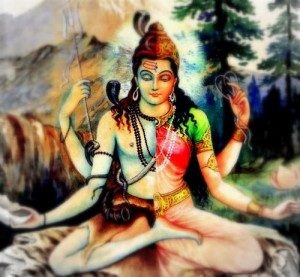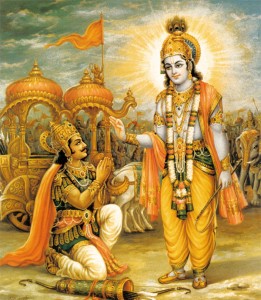Glossary
-
Abhyasa
Practice -
Aham
Self; I AM. -
Ahimsa
Non-injury. Principle of non-violence towards everyone including animals. Ahimsa's precept of 'cause no injury' includes one's deeds, words, and thoughts. -
Ananda
Happiness; Bliss -
Anandamaya
Blissful; Filled with Happiness. -
Annamaya
Made up of food; composed of food. -
Ardhanareeswara
Lord Shiva and Goddess Parvati in the form of half man and half woman united as one Being.
-
Arjuna
Arjuna was the 3rd of the Pandava brothers. He was a brave, triumphant warrior. He is considered as the protagonist of the Mahabharata with Krishna and plays a key role in the Bhagavad Geeta.
-
Asana
Posture; Seating -
Ashram
Traditionally, an ashram is a spiritual hermitage, a monastery, a monastic community, or a place of religious retreat for Hindus.

-
Ashramas
The four Ashramas are orders or stages of life. They are Brahmacharya (Youth/Bachelor - dedicated towards education and development of strong values), Grihastha (Householders - maintaining a good, happy family and being a good example for children and society), Vanaprastha (Retirement - having completed one's duties, taking to contemplation, guidance and peaceful activities), and Sannyasa (Renunciation - giving up attachment to worldly, material desires to achieve oneness of the soul with the supreme being).
-
Atman
Ātman is a Sanskrit word that means inner self or soul. In Hindu philosophy, especially in the Vedanta school of Hinduism, Ātman is the first principle, the true self of an individual beyond identification with phenomena, the essence of an individual. In order to attain liberation, a human being must acquire self-knowledge (atma jnana) which is to realize that one's true self (Ātman) is identical with the transcendent self Brahman. -
Avidya
Ignorance. Not Knowing one's true Self.
